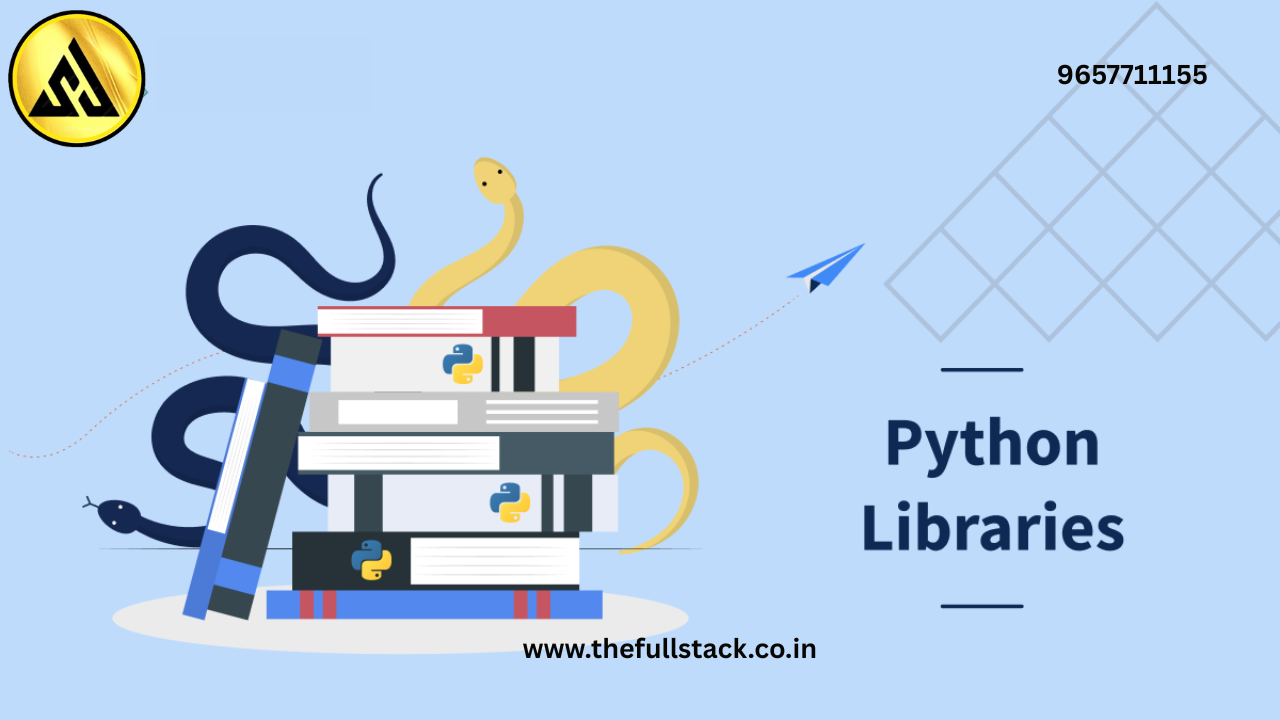
Top 10 Python Libraries Every Developer Should Know
Python’s power lies not only in its simplicity but in its massive ecosystem of libraries. Whether you’re a beginner or an experienced developer, knowing the right libraries can supercharge your productivity and help you write cleaner, faster, and more scalable code.
Here are 10 essential Python libraries that every developer should have in their toolkit:
1. NumPy
Use Case: Numerical computing, arrays, linear algebra
Why It Matters: It’s the foundation for almost all data science and machine learning workflows.
python
Copy code
import numpy as np
array = np.array([1, 2, 3])
2. Pandas
Use Case: Data analysis, manipulation, tabular data (like CSV files)
Why It Matters: Makes handling structured data incredibly easy and intuitive.
python
Copy code
import pandas as pd
df = pd.read_csv(“data.csv”)
3. Requests
Use Case: Making HTTP requests
Why It Matters: Simplifies web communication and APIs.
python
Copy code
import requests
response = requests.get(“https://api.example.com”)
4. Matplotlib
Use Case: Data visualization
Why It Matters: Enables you to create graphs, charts, and plots from your data.
python
Copy code
import matplotlib.pyplot as plt
plt.plot([1, 2, 3], [4, 5, 6])
plt.show()
5. BeautifulSoup
Use Case: Web scraping
Why It Matters: Makes it easy to parse HTML and extract information from web pages.
python
Copy code
from bs4 import BeautifulSoup
soup = BeautifulSoup(html_content, “html.parser”)
6. SQLAlchemy
Use Case: Database interaction
Why It Matters: Abstracts SQL into Python objects—clean and powerful ORM.
python
Copy code
from sqlalchemy import create_engine
engine = create_engine(“sqlite:///example.db”)
7. Flask
Use Case: Web development
Why It Matters: Lightweight framework for building web apps and APIs quickly.
python
Copy code
from flask import Flask
app = Flask(__name__)
8. Pytest
Use Case: Testing and quality assurance
Why It Matters: Simple yet powerful testing framework with great plugins.
python
Copy code
def test_add():
assert add(2, 3) == 5
9. Scikit-learn
Use Case: Machine learning
Why It Matters: Offers tools for predictive data analysis and modeling.
python
Copy code
from sklearn.linear_model import LinearRegression
10. TensorFlow or PyTorch
Use Case: Deep learning
Why It Matters: Industry-standard libraries for building neural networks.
python
Copy code
import tensorflow as tf
# or
import torch
Bonus Tips
- Use virtual environments to manage dependencies
- Regularly explore PyPI to discover new, trending libraries
- Learn by building: apply these libraries to real projects
Practice Challenge
Pick 3 libraries from this list and build a mini-project using them.
Example: Use requests, pandas, and matplotlib to fetch and visualize COVID data.
Keep Learning and Growing
Mastering these libraries opens the door to data science, web development, automation, and more. Invest time in learning how they work—you’ll save countless hours in the long run.
📚 Explore more real-world projects and guided learning paths at
👉 https://www.thefullstack.co.in/courses/
You may be like tis:-
Is Java or Python Better for Full-Stack Development?
Python Full Stack Developer Salary in Dubai: A Lucrative Career Path


Leave a Reply